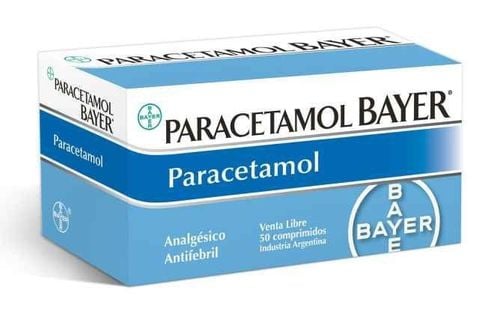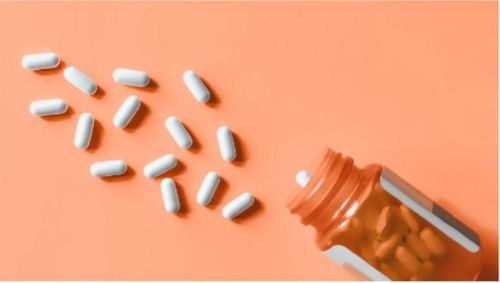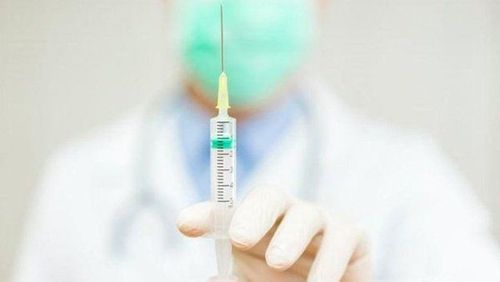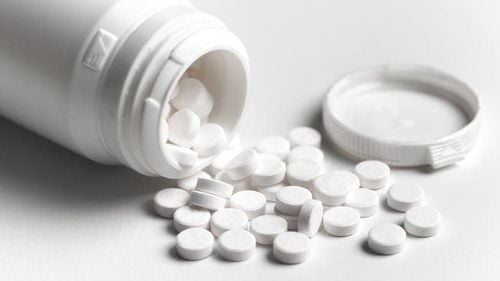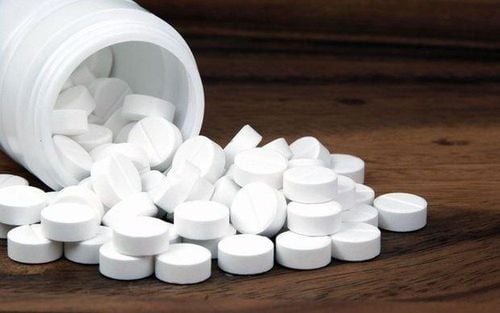This is an automatically translated article.
Acetaminophen is a common medicine used to relieve pain and reduce fever. This medicine is very helpful and safe when taken according to the directions on the medicine label. If taken in excess, acetaminophen can damage the liver and possibly cause liver failure.1. What is Acetaminophen?
Acetaminophen is an active ingredient in many over-the-counter and prescription medicines used to relieve pain and reduce fever. In addition, this drug has also been found in combination with other active ingredients to treat symptoms such as:
Cold and flu symptoms Allergy Insomnia Drugs containing acetaminophen come in different forms such as solutions, syrups , capsules and pills.
Many people call the over-the-counter acetaminophen by other names such as Tylenol, Percocet, or Vicodin, which are brands of prescription drugs that contain acetaminophen and other active ingredients to help relieve pain. Additionally, you may see acetaminophen abbreviated as APAP on prescription drugs.
In other countries, acetaminophen may have a different name. For example, acetaminophen is known as paracetamol in the United Kingdom.
2. Why is an overdose of acetaminophen harmful to the liver?
Poisoning by acetaminophen overdose is caused mainly by liver damage. Acetaminophen is metabolized mainly in the liver, and too much acetaminophen can lead to an overactive liver.
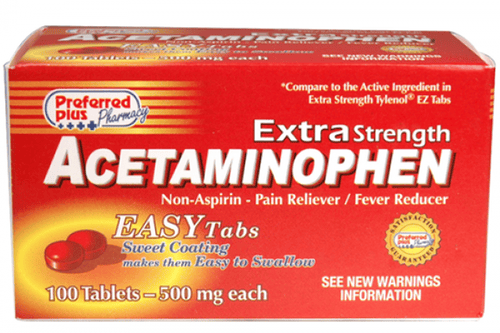
Sử dụng quá liều acetaminophen có thể gây tổn thương gan
The liver will break down most of the ingredients into substances that are safe and can be eliminated from the body by urine. However, small amounts of acetaminophen are converted to a harmful by-product called NAPQI (short for N-acetyl-p-benzoquinoneimine). When you take acetaminophen in recommended doses, your body can quickly get rid of the toxic byproduct through your urine. However, when the liver needs to suddenly metabolize an overdose of acetaminophen, too much toxic NAPQI is produced and it begins to damage liver cells.
If the liver has been damaged by an infection, alcohol abuse, or other illness, the person may be more susceptible to damage from an acetaminophen overdose. For this reason, people with liver disease or those who regularly drink a lot of alcohol should be especially careful when taking acetaminophen and should consult their doctor before taking acetaminophen compounds. The Food and Drug Administration (FDA) now recommends that anyone taking medications containing acetaminophen should not drink alcoholic beverages.
Acetaminophen (Tylenol) Poisoning Symptoms
Immediately after an acetaminophen overdose, you may not have immediate symptoms of toxicity and even, you may remain symptom-free for up to 24 hours after taking the overdose. dose of acetaminophen.
After this initial phase, common symptoms of poisoning include:
Nausea

Người bệnh có thể xuất hiện triệu chứng buồn nôn khi bị ngộ độc thuốc Acetaminophen
Vomiting Feeling unwell Can't eat or not eating Stomach pain Confusion When to go to the hospital
Call your doctor, poison control center or emergency medical services if you suspect an acetaminophen overdose .
Starting treatment early can greatly improve treatment outcomes and prevent serious complications.
Go to a hospital emergency department immediately in the following situations:
If the person who has overdosed on acetaminophen becomes unconscious, semi-conscious, or not breathing, call 911 immediately or take the person to the patient's emergency department nearest hospital. Seek help if you are unsure about the type and amount of medication used. If a child takes acetaminophen without adult supervision and may have overdosed, seek medical attention immediately.
3. Guide to safe use of acetaminophen and avoid liver toxicity
Read the leaflet carefully before use. Do not take more than directed, even if you still have pain or feel unwell.

Người bệnh cần được tư vấn sử dụng thuốc an toàn và hiệu quả
Even with the recommended dosage, you should not take acetaminophen for more than 10 days for pain or 3 days for fever. If you still feel unwell, go to a medical facility for a doctor's examination and advice.
Adults should not take more than 4,000 milligrams of acetaminophen per day from all different forms of medication. At this dose, that means adults shouldn't take more than 12 325-milligram pills each or eight 500-milligram pills each.
For children, the daily limit depends on the child's weight and age. Parents need to check how many milligrams are based on their child's age and weight and follow exactly the instructions listed on the label.
Parents may need to convert their child's weight from pounds to kilograms by calculating it themselves or can use some online tool to do the conversion. If you are not sure how much is right for your child, ask your doctor or pharmacist before use. To help keep track of dosage and frequency of use, parents should keep a complete history of all medications your child takes each day.
Common reasons people mistakenly exceed daily dose limit such as:
Taking too much at once. The interval between two drinks is too close.
If there is a need for consultation and examination at the Hospitals of the national health system, please book an appointment on the website for service.
Articles refer to the source: webmd.com
Please dial HOTLINE for more information or register for an appointment HERE. Download MyVinmec app to make appointments faster and to manage your bookings easily.




